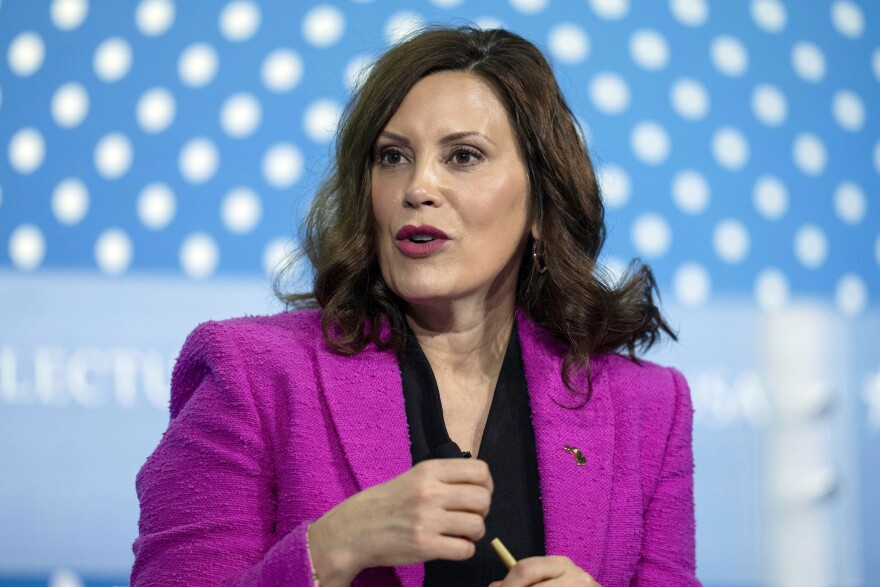Michigan's governor appeared alongside other state lawmakers for a roundtable discussion in Grand Rapids Monday to try to build support for abortion-access legislation.
The “Reproductive Health Act” would remove Michigan’s 24-hour waiting period for abortions, its ban on Medicaid reimbursement for the procedure, and other regulations.
At least one Democratic House lawmaker has signaled opposition to parts of the package.
But Governor Gretchen Whitmer said she doesn’t want to see the package broken up.
“I think that it’s important. I think that the voters expect that. It was a result of an overwhelming effort to enshrine these rights in our constitution but also with the expectation that additional barriers are going to be leveled. So, I’m not going to pick and choose,” Whitmer told reporters after Monday’s discussion.
The legislation is stalled in the Michigan House while supporters try to gather enough votes for it to pass.
The day the package advanced out of committee in late September, Rep. Karen Whitsett (D-Detroit) made her concerns over it known in a Facebook post.
“I will not cast a single vote to allow taxpayer money to fund elective abortions when those same dollars should be used to fulfill our duty to struggling seniors living in poverty,” Whitsett wrote, seemingly referring to the proposed expansion of Medicaid to cover abortion services.
The backlash from abortion-rights groups, including Planned Parenthood of Michigan, was immediate.
In subsequent interviews, including on the MIRS Monday Podcast, Whitsett elaborated that, as a rape survivor and someone who’s gone through a pregnancy termination, she supports abortion rights.
But Whitsett told MIRS that members of her district had shared concerns about the possibility of unintended health and safety consequences of the legislation falling disproportionately on Black women.
Throughout the committee process, several medical professionals and supporters of the package told the House Health Policy Committee abortions were safe. Meanwhile, they said, overregulation of the industry has been a barrier to opening new clinics in underserved areas.
Representative Kristian Grant (D-Grand Rapids) is among the co-sponsors of the Reproductive Health Act legislation. When asked how Whitsett’s concerns had been taken into account for the legislation, Grant said she saw it as an issue of access and trusting people to make decisions for themselves.
“Everyone’s situation is so different and so nuanced and the issue that we see now is that you may really, really be in need of this care and you don’t have access to it. And those are the people that are the most vulnerable and that will have a domino effect for our community in a different way,” Grant said Monday.
As far as getting the bill package through the Legislature, it’s unclear what discussions are occurring to bring holdouts on board.
When introducing the bills in September, sponsors said they made a conscious decision to leave behind more controversial topics, like parental consent.
After Monday’s roundtable, Senate Majority Leader Winnie Brinks (D-Grand Rapids) declined to say whether any Senate Democrats had brought up similar concerns as Whitsett.
“I don’t want to speak to internal conversations but … it’s a strong package and the whole package together should move,” Brinks said.




